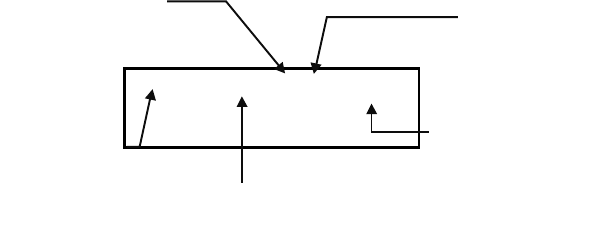
11
Typing and Editing Text
This section describes how to use the keypad to type and edit text for your labels.
Typing Text Characters
• Alphabetic letters: Type lower-case letters (a-z) by pressing the appropriate keys.
Press the <Space> key to add a space between words. Type an upper-case letter by
holding down the <Shift> key while typing the letter. To type many upper-case letters
in a row, turn the Caps Lock feature on by pressing the <Func> + <Cap Lock> keys.
• Numbers: Type numbers (0-9) by pressing the desired keys.
• Secondary characters: A red secondary character appears on the upper-right of each
text key. Type one by first pressing the <Func> key, then press the desired secondary
character key.
• Accented Characters: To place an accent mark over a vowel, type the mark first
followed by the letter itself (Note: “~” is to be used with the letters A,a or N,n only).
Reading the LCD and Moving the Cursor
As you type characters, they appear on the liquid crystal display (LCD) at the cursor’s
position. Depending on the installed label size and font size selected, you can have up to 23
lines on a single label and 50 characters on a single line. The cursor marks your current typing
or editing position.
The LCD will display two lines of text with 16 characters on each line. The first line will
always display the STATUS BAR which displays font and character positioning information
(see below).
Status Bar
= 01 < = 14 = < CT <
= 01<
If you are entering more than 16 characters on a line, you will not be able to see the entire
label until it is printed. The arrow keys allow you to move the cursor around the LCD. As the
cursor moves beyond the 16
th
character, the screen will scroll to display the remaining text for
Line No.
Font Size
(1-14)
Horizontal
Character
Position
Legend Type
(Text, Bar Code)
Label Format
(Component, Wire)
